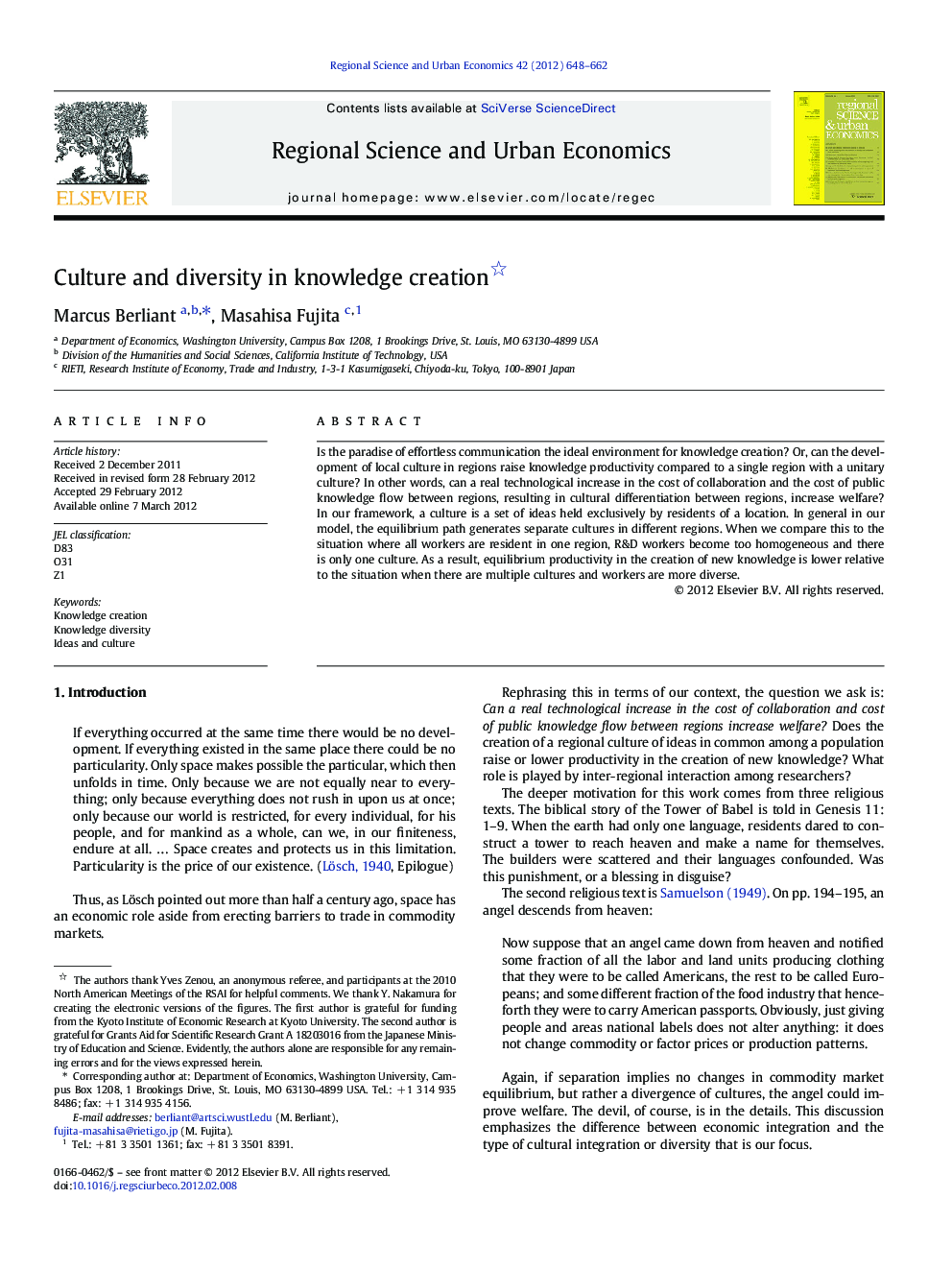| Article ID | Journal | Published Year | Pages | File Type |
|---|---|---|---|---|
| 983733 | Regional Science and Urban Economics | 2012 | 15 Pages |
Is the paradise of effortless communication the ideal environment for knowledge creation? Or, can the development of local culture in regions raise knowledge productivity compared to a single region with a unitary culture? In other words, can a real technological increase in the cost of collaboration and the cost of public knowledge flow between regions, resulting in cultural differentiation between regions, increase welfare? In our framework, a culture is a set of ideas held exclusively by residents of a location. In general in our model, the equilibrium path generates separate cultures in different regions. When we compare this to the situation where all workers are resident in one region, R&D workers become too homogeneous and there is only one culture. As a result, equilibrium productivity in the creation of new knowledge is lower relative to the situation when there are multiple cultures and workers are more diverse.
► A culture is a set of ideas held exclusively by residents of a location. ► The equilibrium path generates separate cultures in different regions. ► With one region, R&D workers become too homogeneous and there is only one culture. ► Equilibrium productivity is low relative to multiple cultures with diverse workers.
